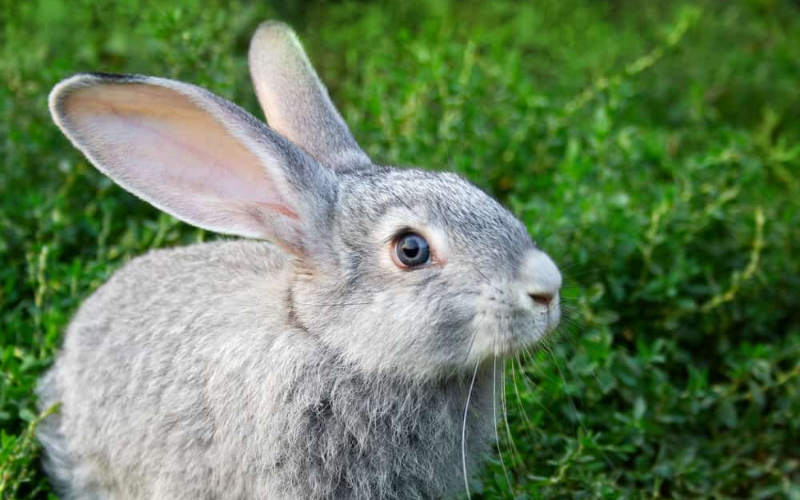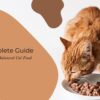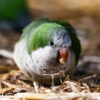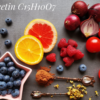- How Long Does A Quaker Parrot Live? - 17 May 2024
- 4 Hacks on Keeping Your Home Clean With Pets - 28 March 2024
- 5 Things to Know Before Bringing Home a New Kitten - 26 March 2024
Fruits and vegetables are essential diet sources for rabbits because they provide extra nutrients. Not all fruits and veggies are suitable for rabbits, so we need to feed only those suitable for bunnies. Here, we are exploring whether rabbits eat dragon fruit or not. Let’s get into the blog to know more about this.
Table of Contents
Why Rabbits Eat Dragon Fruit?
Well, dragon fruit is considered a safe and healthy treat for rabbits over 7 months. Make sure you are feeding them in small quantities as an occasional treat. It would be an excellent treat for rabbits because it is a good source of fiber, vitamins, and other healthy nutrients, which is beneficial for health, especially when fed in moderation.
However, it cannot be offered to rabbits daily as this fruit is loaded with high sugar and sodium content that causes serious health issues—serving excessive amounts of dragon fruit causes diabetes, weight gain, obesity, or urinary problems. Dragon fruit is best for healthy bones and teeth because it contains calcium, and giving too much causes bladder stones or kidney infections.
Health Benefits of Dragon Fruits
It has so many vitamins and minerals that can benefit a healthy life span. The excellent combination of iron, fiber, and magnesium found in dragon fruits makes them perfect supplements as a treat for rabbits. It contains a good source of fiber, which is essential for the digestive system and growth.
Magnesium, phosphorus, Vitamin C, and calcium benefit rabbits and go well with them. This is one of the greatest fruits and treats for pets because it has a low-fat content compared to the advantages it provides.
Nutritional Values of Dragon Fruit
| Water | 83g |
| Dietary fiber: | 2.9 g |
| Protein: | 1.18 g |
| Calories: | 60 |
| Fat: | 0 g |
| Calcium: | 18 milligrams (mg) |
| Phosphorus | 36mg |
| Cholesterol: | 0 mg |
| Sugars (total): | 7.65 g |
| Carbohydrate: | 12.94 g |
| Iron: | 0.74 g |
| Vitamin C: | 2.5 mg |
| Sodium: | 0 mg |
Antioxidants
Dragon fruit contains huge amounts of antioxidants to protect rabbits from illnesses and body cells from free radicals and prevent many other health issues. It is healthy for the rabbit’s gut and immune system to have a healthy life.
Source of Fiber
Fiber is essential in rabbit diets; dragon fruit contains dietary fiber that can help maintain healthy digestion for rabbits. Adequate fiber intake prevents gastrointestinal issues like constipation and promotes gut health.
Iron
Iron is crucial for maintaining healthy blood. Animals can also suffer from iron deficiency, leading to weakness, hair loss, and altered appetite. Potassium regulates blood health with iron. It aids in keeping rabbits’ blood pressure normal at healthy levels.
Is It Safe to Feed Dragon Fruit To My Rabbit?

Feeding dragon fruit to rabbits is considered safe and healthy only if given small amounts as an occasional treat. Dragon fruits are non-toxic for rabbits and contain many beneficial vitamins and essential minerals. Feeding dragon fruit in excess amounts or frequently could cause serious health issues like diarrhea or stasis due to high sugar and carbohydrate content. Providing dragon fruit in large amounts could cause:
Teeth decay
A high-sugar diet promotes tooth decay and tooth rot, increasing bacterial and mouth problems.
Weight Gain
Dragon fruit incorporates high carbs and sugar content, leading to obesity or weight gain if fed to rabbits regularly or in large quantities.
Diarrhea
Feeding a high amount of water in dragon fruit excessively leads to health issues like diarrhea or loose stools.
Diabetes
Dragon fruit has a sizable amount of fructose sugar, which can harm rabbits, especially when consumed in large amounts. High sugar consumption causes diabetes and severe health problems in rabbits.
Urinary Problems
It contains a lot of calcium, especially when consumed excessively, causing rabbits to experience urinary difficulties such as urinary stones or infections in the urinary system.
Can Rabbits Eat Dragon Fruit Skin Or Peel?
Don’t feed dragon fruit skin or peel the rabbit as it could be hard to chew. The skin of dragon fruit contains harmful chemicals like pesticides that have been sprayed while harvesting, which can be toxic to rabbit health. Removing the skin or peeling dragon fruit before feeding it to rabbits is essential.
Can Baby Rabbits Eat Dragon Fruit?
No, don’t feed baby rabbits dragon fruit. Bunnies under 12 weeks old don’t fully develop digestive and GI tracts and cannot eat exotic or high-sugar foods. If your mature rabbit seems to exhibit discomfort, abnormal Behavior, or soft stool, don’t feed it more dragon fruit.
If you notice loose stools or any change in rabbit behavior, stop feeding dragon fruit, provide only hay and water, and reintroduce the fruit next time. As small rabbit digestive systems are sensitive, it may take some time for their gut bacterial flora to become habitual to new food in their diet.
What’s bad about Dragon Fruit for Rabbits?
There are the following downsides of feeding dragon fruit to rabbits:
- Too high in Sugar
- High risk of obesity
- Too much water
- Oversaturation of Nutrients
How often should I feed dragon fruit to my rabbit?
Feed your rabbit only 1-2 tablespoons of flesh-chopped dragon fruit once or twice a week as an occasional treat. It’s essential to choose a ripe dragon fruit for the rabbit. To remove any pesticides that can be sprayed during the growing process, wash the dragon fruit skin and adequately remove the skin from dragon fruit flesh. The dragon fruit can be fed by hand or combined with other veggies. Excessive amounts of dragon fruit to rabbits could cause concern, leading to health issues. It’s essential to provide it in a small portion in moderation to avoid issues like weight gain or GI stasis conditions.
Wrap Up
These are the few aspects of dragon fruit feeding to rabbits. It is considered a safe and healthy treat for rabbits above 7 months. This fruit is risk-free and secure for mature rabbits to consume. Avoid feeding your rabbit dragon fruit with skin or peel because it is too hard to chew.

















